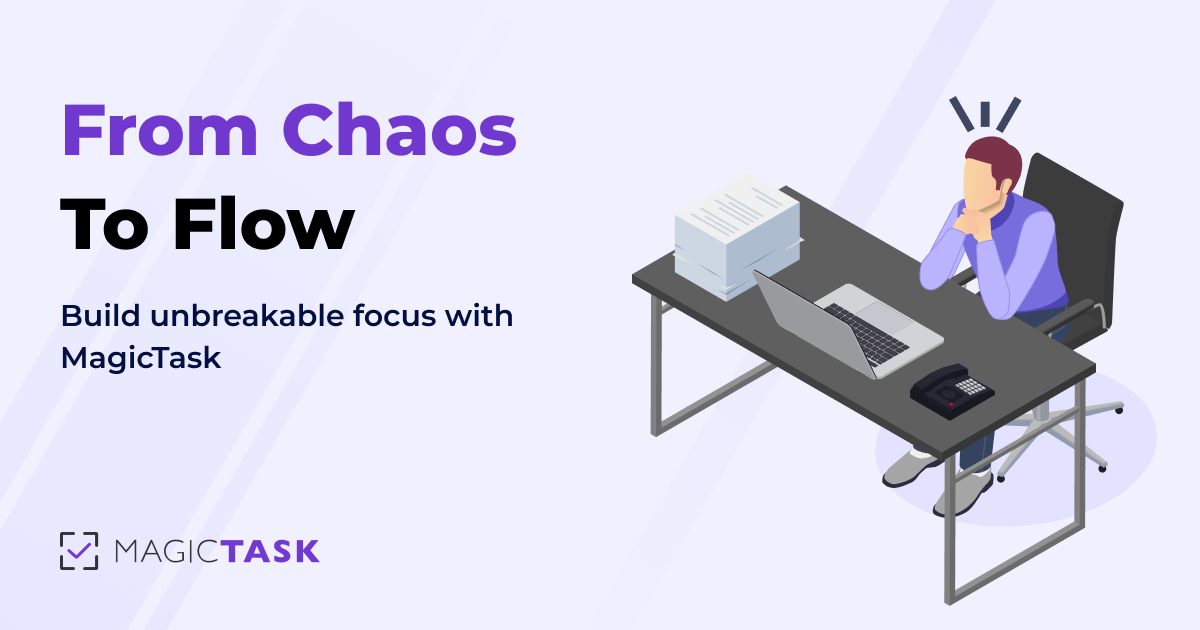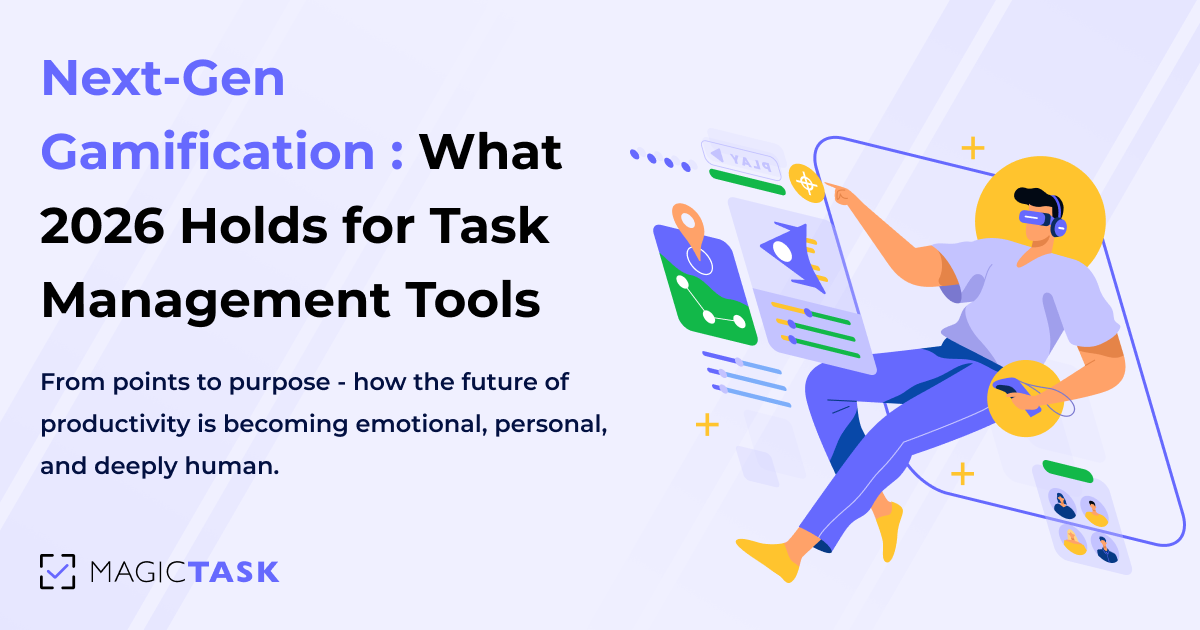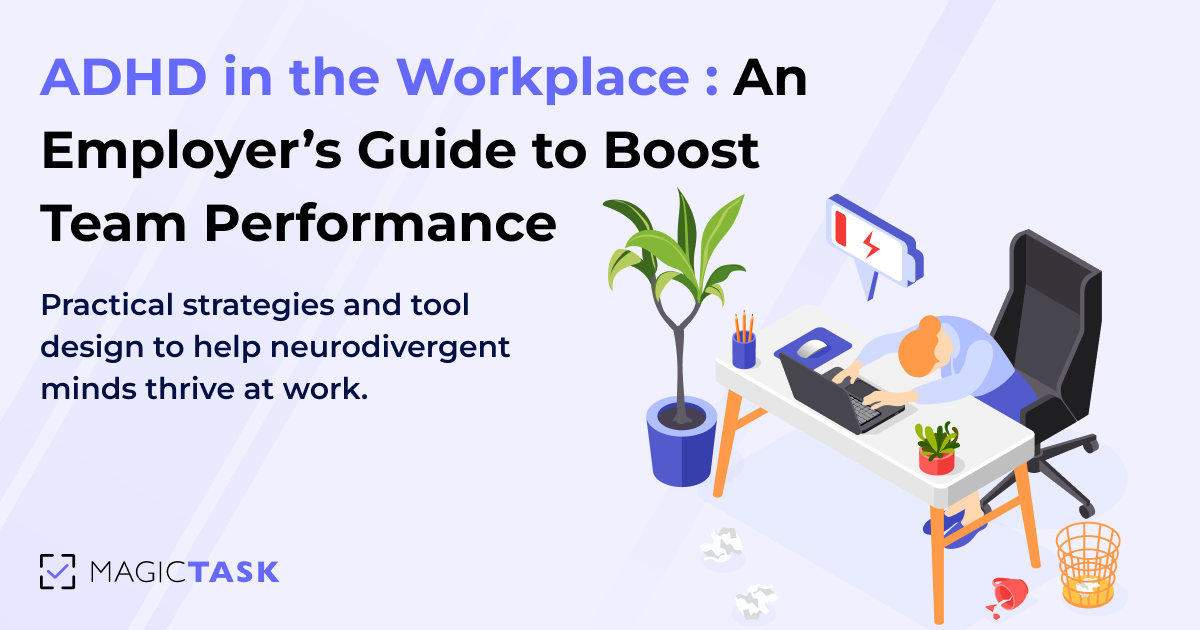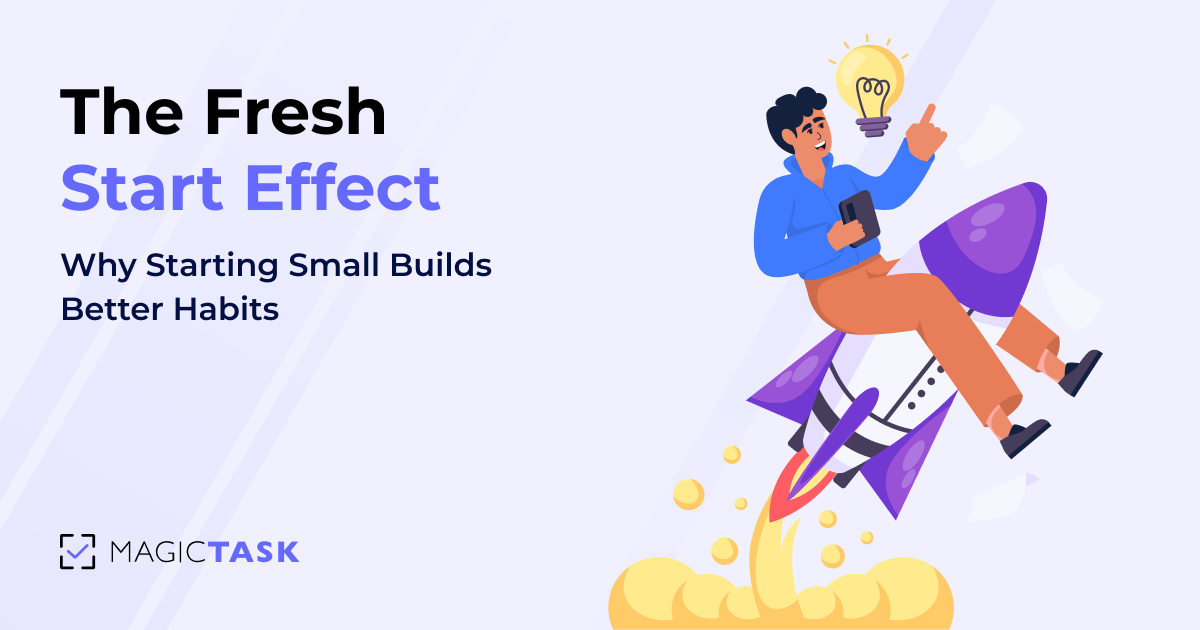Why Gamers Are More Productive (And How You Can Be Too)
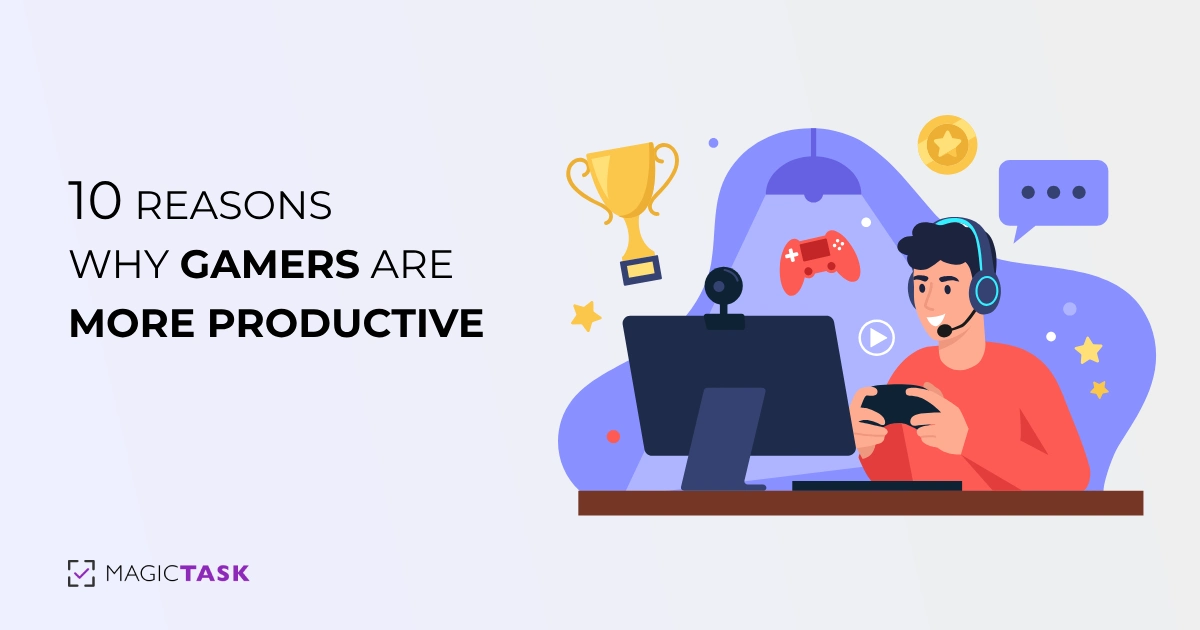
Ever crushed a boss fight in your favorite game, riding that high, only to switch over to work and feel your energy drop?
You’re not alone.
Games are designed to keep you fully engaged. They give you a clear objective, immediate feedback, and a constant sense of progress.
Every action has a purpose. Every win, no matter how small, feels earned. That’s not just entertainment, but a blueprint for high-performance behavior.
At work, we often lack that structure. Tasks feel vague. Wins go unrecognized. Motivation fizzles.
But here’s the catch: the same principles that make games so immersive can be applied to your work.
Gamers already know how to stay focused, adapt quickly, and push through challenges. All that’s missing is bringing that mindset into the real world.
Let’s break down ten reasons gamers are naturally more productive and how you can use those habits to level up your workflow, starting today.
Top 10 Reasons Why Games are More Productive
You already know how to stay on top of the leaderboard while video gaming. But if you’re ready to level up your game at work, let’s press “Start”.
Here are the ten gamer-tested strategies that keep you locked in and conquering every challenge at work.
1. Gamer's Mentality: Tools First, Hustle Later
Have you watched a seasoned gamer dive into a new title?
Before they even pull the trigger, they’ve tweaked their keybindings, installed the must-have mods, and mapped out macros for every routine action.
So when the action heats up, they never miss a beat. That’s not just “geek cred,” it’s a productivity hack in disguise. Gamers offload low-value clicks and decisions onto innovative tools, freeing their attention for the real challenge.
Your workday deserves the same respect.
When your task management tool is half-configured or is too cluttered with several options, your brain wastes precious cycles deciding where to click next, which folder to open, or how to track progress manually.
That friction multiplies cognitive load and steals momentum.
Imagine trying to sprint through a level while constantly stopping to adjust the joystick sensitivity. It doesn’t work in gaming, and it won’t work at your desk.
Enter MagicTask.
It’s built for focus from the start. With features like task sizing (S, M, L, XL), a clean Backlog, and a drag-and-drop My Focus view, MagicTask helps you front-load the decisions that usually derail your flow.
Instead of wondering where to start, you just hit play and get moving—because your system is already aligned with how your brain works best.
2. It’s Fun to Compete (Even With Yourself)
With your setup locked in and your focus clear, it’s time to bring in the spark that keeps gamers glued to their screens: competition.
Every gamer knows that the most satisfying thing about playing games is winning. That rush is your brain’s reward circuitry lighting up with a hit of dopamine every time you top your last score.
Psychologists call this intrinsic motivation.
When you set a goal, achieve it, and feel genuinely competent, your brain rewards you and then quietly nudges you to raise the bar again.
At work, you can harness this same drive by tracking your benchmarks.
In fact, studies show that setting a specific, challenging goal can boost employee productivity by up to 30%.
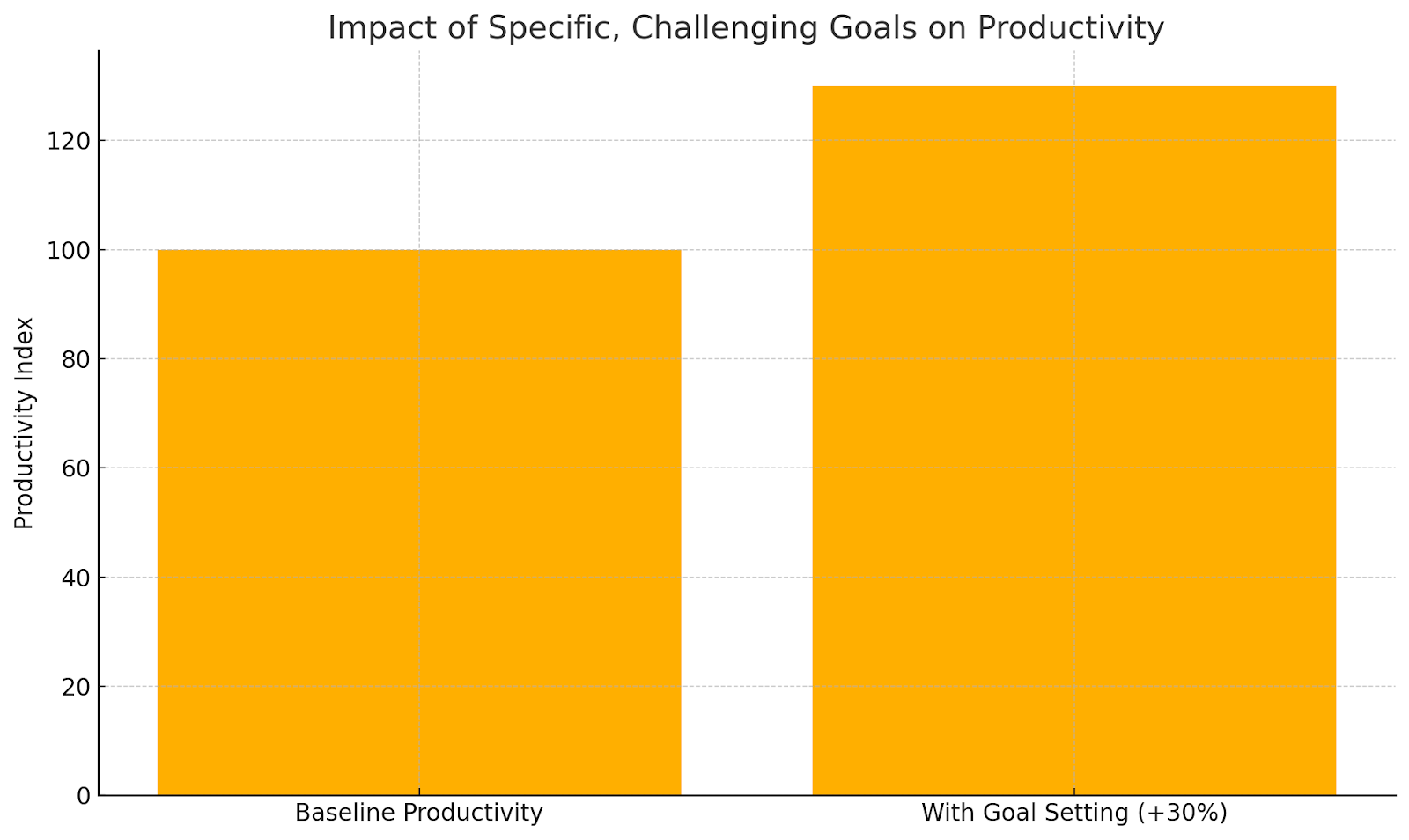
MagicTask makes it effortless with gamification.
Every task you finish adds points/tokens to your dashboard, and hitting a new high score unlocks fresh themes and animations.
That friendly, self-directed competition keeps you engaged, focused, and continually leveling up your performance.
After you’ve stoked that competitive fire, the next step is total clarity on your objective
3. Always Know What You’re Working Toward
In a game, you're never confused about your next move; it's right there on your mission list —defeat the final boss, capture the flag, or rescue the princess.
That clarity is your roadmap to success.
At work, vague directives like “Work on deck” leave you without direction or urgency.
Here’s how to apply a gamer’s clarity to your daily tasks:
Let’s say you have to work on the Q2 Growth Report. But you don’t know where to start.
Using the gaming theory, you break it down:
- Mission Title: Draft Q2 Revenue Summary
- Objective: Identify and write five key growth insights
- Success Criteria: Five bullets, each citing data from our CRM dashboard
- Deadline: Complete by Jan 3, 2025
This is how it will look in MagicTask:
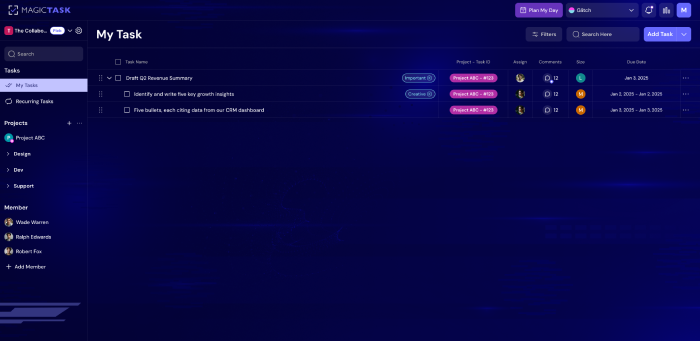
By spelling out exactly what “winning” looks like, you eliminate confusion and prime yourself for action.
With your mission crystal clear, the real magic happens when you can actually see yourself making headway.
4. Progress Is Always Visible
One of the smartest moves game designers make is to give you a running score when XP bars fill up, levels unlock, and progress rings animate.
Every time you land a hit on an enemy or solve a puzzle, you immediately see how much closer you are to the next milestone.
That real-time feedback loop releases dopamine, keeps your focus sharp, and makes you want to chase the successive win.
At work, by contrast, our “wins” often vanish into thin air.
You might spend an hour drafting a report, but the effort feels invisible unless you consciously note your progress, and motivation stalls.
Without clear checkpoints or a visual gauge of how far you’ve come, it’s all too easy to lose momentum and wonder, “Did I move the needle today?”
Here’s how to bring visible progress into your work:
1. Break projects into tracked milestones.
Instead of “Finish annual report,” carve out “Complete executive summary,” “Design four data charts,” and “Polish conclusion.”
Mark each one off as you go so you watch your project bar climb.
2. Use a visual progress bar
In tools like MagicTask, every completed task fills your personal XP bar and increments your level.
You see the colour advance, the percentage tick up, and sometimes even a confetti burst—simple cues that cement the feeling of forward motion.
3. Leverage habit-tracker templates
A daily checklist or habit-tracker app can show you streaks and completion rates. Crossing off “Research competitor benchmarks” five days in a row becomes a streak you don’t want to break.
4. Celebrate micro-milestones
After every batch of three or four tasks, pause for a quick win. Stretch, grab a coffee, and unlock your new MagicTask theme.
Those small rituals punctuate your day with
clear “you did it” moments.
When progress is tangible, your brain rewards
you, and you stay engaged. That’s the secret
behind why games hook you in, and why bringing
that same visibility to your work can transform
dragging through tasks into a series of
small, satisfying victories.
5. Rewards Keep You Hooked
Small wins fuel big habits. In games, you don’t have to slay the final boss to feel accomplished.
A simple badge unlock or “level up” notification gives your brain a quick hit of satisfaction. At work, however, finishing that slide deck or sending essential emails often earns nothing more than a quiet sigh.
That’s why you need to engineer your micro-celebrations. After you complete a discrete piece of work, take a moment to acknowledge it.
Switch your MagicTask theme to something fresh, stand up and take a small walk, even if it is only inside the office, and have a cookie.
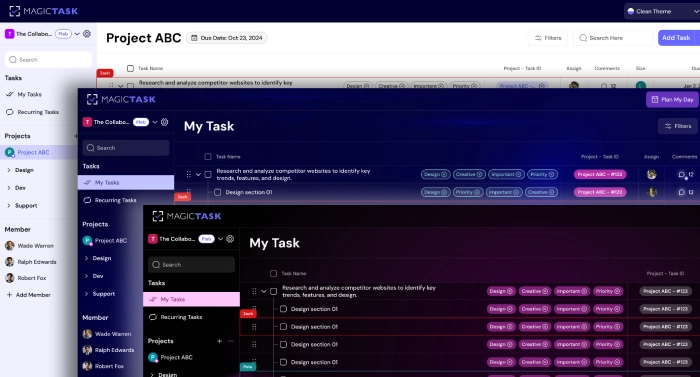
Those few seconds of recognition mimic the dopamine jolt you get in gaming and keep your motivation ticking upward.
Over days and weeks, these tiny rituals add up, transforming routine chores into an ongoing series of victories you look forward to.
6. You Always Know What’s Next
After you earn that reward, games don’t leave you hanging—they immediately queue up your next mission.
One moment you’re basking in victory, the next you’re charging toward the next objective, momentum unbroken.
At work, you often wrap up a task and find yourself staring at a blank slate—“What should I tackle now?”
That uncertainty interrupts your flow and makes it easier to get pulled into email or unrelated research.
Always define your next step before you wrap up to avoid that gap.
You already have your tasks in the MagicTask backlog with the task size assigned.
Once you’re done with one task, you can pull another one into the “My Focus” section and start working on that.
7. There’s a Natural Flow Between Easy and Hard Tasks
Before you charge straight into your most challenging projects, give your brain the chance to warm up.
Just like a pro gamer breezes through early levels to build confidence (and rack up a few easy wins), you can prime your focus by layering “warm-up” tasks before tackling the heavy hitters.
Many of us dive headfirst into demanding work, like writing a white paper, building a financial model, or redesigning a website, only to stall out under the mental weight.
However, our cognitive resources are finite, and confronting “level 100” tasks cold can trigger avoidance and burnout.
Why it matters
- Cognitive Priming: Completing simple tasks first frees up mental bandwidth. Each quick win floods your brain with dopamine, sharpening attention and making it easier to shift into deep work.
- Momentum Building: Those first few boxes you check establish a rhythm. You’re no longer starting from zero but building on real, visible progress.
- Reduced Resistance: Warm-up tasks feel “easy enough” that your limbic system doesn’t hijack you with fear or boredom when the real challenge arrives.
How to put it into practice:
1. Identify your “Level 1” tasks. Quickly scan your to-do list and pick three items that take no more than 10 minutes each.
2. Sequence deliberately. Tackle those mini-tasks first thing—whether that’s morning email triage, calendar confirmations, or file organization.
3. Track each victory. As you finish each warm-up task in MagicTask, check them off and watch your points tally climb.
4. Move up to “Level 5.” By the time you reach your core project—be it drafting a report or coding a new feature—you’ve already got momentum on your side, and mental friction is massively reduced.
By structuring your day as a smooth progression from quick wins to meaningful challenges, you transform intimidating work into a flow of achievable steps.
You’ll find that what once felt like climbing to the top of a mountain now resembles a series of small treks, each one building the confidence and focus you need to summit the next.
8. External Distractions Are Designed Out
Focus is your most precious resource.
Research finds that a single distraction can cost you 23 minutes of regained concentration.
Games are engineered to keep every alert, every notification, and every distraction at bay until you’re ready to pause.
In World of Warcraft, your chat window hides by default in raid encounters.
In Doom Eternal, the game goes full-screen with no pop-ups to distract your eye from the demon horde. This design is a built-in shield for your brain’s fragile focus.
Contrast that with a typical workday.
Slack blinks, your inbox pings, your screen fills with calendar reminders—and just like that, your mental context splinters into a dozen fragments.
Every interruption forces your brain to unload and reload your working memory, leaving you piecing together the thread of your task bit by bit.
How to protect your focus:
- Silence non-urgent alerts. Configure “Do Not Disturb” or “Focus Assist” on your devices, and pause notifications in Slack, Teams, or your email client.
- Go full-screen on your task. In MagicTask, collapse extras so only your current task is visible—no sidebars, no menus, just the work you chose to tackle now.
- Create a quiet workspace. Use noise-cancelling headphones or soft background sound to block office chatter. If possible, close your office door or put up a “Please Do Not Disturb” sign.
- Audit your biggest disruptors. Track which apps or alerts interrupt you most over a week, and turn off or limit the worst offenders.
Proactively removing external distractions gives your brain the uninterrupted stretches it needs to work efficiently and with less stress.
9. Time Pressure Creates Energy
With distractions out of the way, you need to give your work a deadline that means something.
In gaming, a ticking clock turns a routine quest into an adrenaline spike—without that pressure, most tasks simply drift on indefinitely. You need to create that sense of urgency in your work.
Under moderate stress, your brain releases just enough adrenaline to sharpen focus and accelerate decision-making.
This is the Yerkes–Dodson law in action.
A clear time limit—say, 20 minutes to draft an email—hits that sweet spot, turning vague “someday” tasks into urgent targets your mind can tackle.
You’re no longer debating whether to open that spreadsheet; you’re in a sprint to get it done before the buzzer. This curbs the tendency for work to expand to fill available time.
One marketing manager I know starts every day with a 30-minute sprint to outline her campaign brief—no Slack, no side research, just pure focus.
The result?
She often finishes early enough to refine her ideas, rather than grinding through the morning and still struggling with her to-do list. That small time-boxed win fuels both momentum and confidence.
How to Set Your Time-Boxed Challenges
- Choose a single task (e.g., draft the project summary).
- Decide on a strict but realistic timer, such as 15, 25, or 45 minutes, depending on the complexity.
- Eliminate distractions and focus on the task at hand.
- Sprint until the timer chimes, then take a short break.
By turning open-ended work into high-intensity sprints, you harness the same rush gamers feel in the final seconds of a match—only here, every buzzer marks real progress on your goals.
10. You Get Better the More You Repeat
By now, you’ve seen how deadlines light a fire under your focus. The final piece of the puzzle is Repetition.
In video games, mastering a boss fight or perfecting a speed run only happens through repetition.
Each attempt teaches you enemy patterns, improves your reflexes, and boosts your confidence that next time you’ll succeed.
At work, we often shy away from repeating the same process. We rewrite similar emails from scratch, rebuild comparable slide decks, or reinvent our weekly reports. Each “first draft” feels like starting a new game level, slowing us down and undermining our growing expertise.
How to Apply The Gamer’s Perfection Hack:
1. Identify High-Value Routines. Pinpoint the daily or weekly tasks that recur, like status updates, project kickoffs, and client proposals.
2. Standardize Your Approach. Create templates, checklists, or “playbooks” for each routine. By codifying your process, you remove decision fatigue and free mental bandwidth for creative tweaks.
3. Schedule Practice Sessions. Block out time—just as you would for a Pomodoro sprint—to run through your routine, even when it’s not urgent. Regular rehearsal builds muscle memory.
4. Measure and Iterate. After each cycle, note what worked and what can be improved. Over time, shaving off even a minute or two per task translates to hours regained each week.
When you embrace repetition, you’re not just working harder—you’re working smarter.
Each replay is skill-building that compounds, making you faster, more accurate, and more confident.
Use this same principle in MagicTask by setting recurring tasks and templates, so every task of your workday becomes an opportunity for mastery.
Final Thought
By now, you’ve seen how games teach us to plan our next move, celebrate every win, and adjust our strategy on the fly. Imagine bringing that same sense of clarity, reward, and momentum to your workday. You don’t need more discipline, you just need a better system.
MagicTask makes it possible:
- Earn points for every task you complete. Instant feedback that fuels your momentum.
- Climb leaderboards. Friendly competition—against yourself and your team—keeps you reaching higher.
- Unlock and level up themes. Fresh visuals reward consistent effort and keep your interface inspiring.
- Organize with clarity and flow. A clean, distraction-free workspace that zeroes in on what truly matters.
So go ahead, give your to-do list a redesign.
Sign up for MagicTask, drag your first task into “My Focus,” and watch that little win light up your day.
Because real productivity isn’t about willpower—it’s about creating a system that plays to your brain’s wiring. Try MagicTask free today and turn your daily grind into a winning game.
